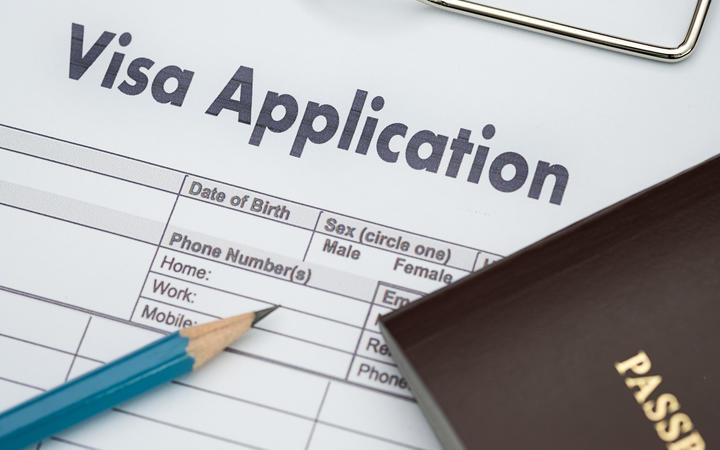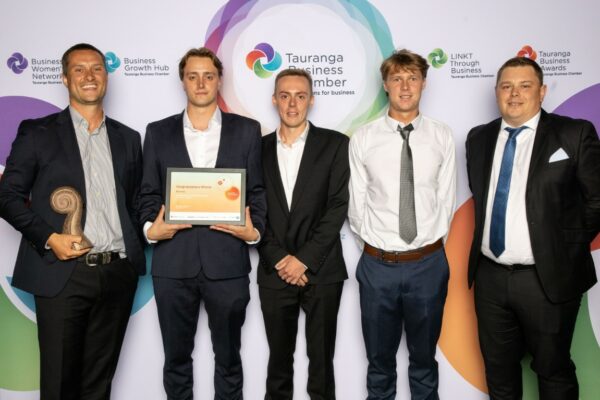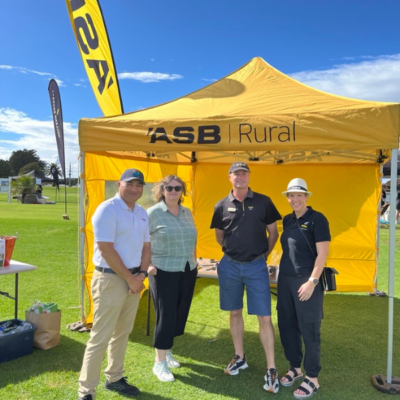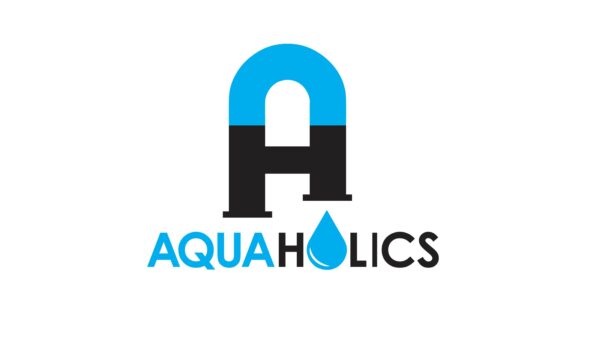Immigration New Zealand has provided an update on the new proposed Accredited Employer Work Visa and new compulsory Employer Accreditation system.
Broadly speaking, the changes are:
- The introduction of the Accredited Employer Work Visa, which will replace six existing work visas.
- The introduction of the Accredited Employer Work Visa employer-led visa process, which will include the new compulsory Employer Accreditation system.
Lauren Qiu from specialist immigration law firm Stay Legal provides a detailed overview of the new employer-led visa process and what you need to know now.
Please note that Immigration New Zealand has indicated that these are still proposed changes, so there may still be further minor adjustments to the policy.
The New Accredited Employer Work Visa
The new Accredited Employer Work Visa to replace six employer-assisted work visa categories on 1 November 2021. The affected categories are listed below:

Source:Immigration New Zealand
Temporary visas that are not listed above will not be replaced by the Accredited Employer Work Visa.
These include:
- Recognised Seasonal Employer (RSE) Limited Visa;
- Working Holiday Schemes;
- Post-Study Work Visa;
- Fishing Crew Work Visa;
- Religious Worker Work Visa;
- Specific Purpose Work Visa;
- Partnership Work Visas; and
- Work visas granted based on international or humanitarian reasons.
Applications for the six affected existing work visa categories will close on 31 October 2021. Existing work visas in a category that is being replaced will remain valid until the work visa expires or if the visa becomes invalid.
The replacement of the Work to Residence – Talent (Accredited Employer) Work Visa and Work to Residence – Long Term Skill Shortage List Work Visa will mean that these pathways to residence will also cease. Employers may want to talk to their migrant workers to see if they are on the best possible work visa right now.
The New Work Visa Process
Immigration New Zealand is proposing to flip the current existing work visa process on its head. Employers will soon lead the work visa process. This means a migrant worker’s potential employer will need to gain compulsory Employer Accreditation and complete the Job Check before the migrant worker can apply for a work visa.
The new proposed Accredited Employer Work Visa employer-led visa process will have three checks in the following order:
- The Employer Check.
- The Job Check.
- The Migrant Worker Check.
The Employer Check
What It Means For Employers
The Employer Check will replace three existing employer policies. The renewal applications for the following existing employer policies will close on 30 June 2021:
- Approval in Principle gained by an employer to hire migrant workers on Essential Skills Work Visas.
- The existing Employer Accreditation system to hire migrant workers on Work to Residence – Talent (Accredited Employer) Work Visas.
- The existing Labour Hire Accreditation to hire migrant workers on Essential Skills Work Visas.
Under the new proposed Accredited Employer Work Visa employer-led visa process, it will be mandatory for all employers (including existing Accredited Employers) to be accredited under the new proposed Employer Accreditation system before they can hire a migrant worker on the new proposed Accredited Employer Work Visa. The Employer Check application fee will be covered by the employer.
The new proposed Employer Accreditation system will be launched in late September 2021. Employers who are wanting to support migrant workers on the Accredited Employer Work Visas immediately on the introduction date (1 November 2021) will be able to apply for the new Employer Accreditation during late September 2021. This will allow employers to gain accreditation and be ready for when the new Accredited Employer Work Visa is introduced. Employers have until 31 October 2021 to support migrant workers under the current work visa policies.
Employers who are currently supporting migrant workers on Work to Residence – Talent (Accredited Employer) Work Visas or Essential Skills Work Visas do not need to be accredited under the new Employer Accreditation system until they want to support a migrant worker on the new Accredited Employer Work Visa. For example, if an employer has a migrant worker whose Essential Skills Work Visa expires in March 2022, the employer does not need to be accredited under the new Employer Accreditation system on 1 November 2021 unless they are planning to support a migrant worker immediately after the new Accredited Employer Work Visa application system is introduced.
Employers that only hire migrant workers on visas with open work visa rights (such as the Partnership Work Visa, Working Holiday Work Visa, or Student Work Visa) will not need to be accredited.

What The New Proposed Employer Accreditation Will Look Like
Immigration New Zealand is proposing for there to be 2 accreditation levels under the new proposed Accredited Employer Work Visa employer-led visa process. The proposed levels of accreditation are:
- Standard Accreditation: For employers who intend to support between 1 and 5 migrant workers on the new Accredited Employer Work Visa at any one time.
- High-Volume Accreditation: For employers who intend to support 6 or more migrant workers on the new Accredited Employer Work Visa at any one time.
Migrant workers on other visa types (such as those on Working Holiday Work Visas) do not count towards the total number of Accredited Employer Work Visa employees.
When initially approved, all Accredited Employers under the new system will receive accreditation for 12 months. At renewal, Standard Accredited Employers and High-Volume Accredited Employers will receive accreditation for a further 24 months. Franchisee employers and employers who are wanting to place their migrant workers on the new Accredited Employer Work Visa with third parties (triangular employers) will only receive accreditation for a further 12 months upon renewal.
All employers who intend to support migrant workers on the new proposed Accredited Employer Work Visa will need to meet Standard Accreditation requirements. To gain Standard Accreditation, employers must:
- Be a genuine operating business. This means they must be registered with Inland Revenue and hold a New Zealand Business Number. Immigration New Zealand may also request for evidence of the employer’s financial position.
- Not have a recent history of regulatory non-compliance with immigration law and employment law.
- Take steps to minimise the risk of migrant worker exploitation. This is done by completing employment modules, providing migrant workers with advice on their rights, and paying recruitment costs (these costs include advertising costs, agency fees, employer and job check application fees, training and induction costs, health and safety equipment costs, and branded uniform costs).
To gain High-Volume Accreditation, employers must meet the requirements for Standard Accreditation and also demonstrate a commitment to improving pay and employment conditions for all employees over time. What this means is that jobs with High-Volume Accreditation employers must either pay 10% above the minimum wage or be covered by a collective agreement. This means that if a High-Volume Employer submits a Job Check for a job paying less than 10% above the minimum wage, or is not covered by a collective agreement, the Job Check will be declined.
There are additional requirements for franchisee and triangular employers. Triangular employers include labour-hire companies and working arrangements where parent companies place migrant employees in subsidiary companies.
It is important for employers to start reviewing internal documentation in preparation for accreditation and make a plan for their existing migrant workers.
The Job Check
The Job Check must be completed before a migrant worker can be supported and it will look at the remuneration and terms of the job offer. This step may also include a Labour Market Test.
A Labour Market Test is an advertising test to demonstrate that the employer has genuinely advertised the job to New Zealand Citizens or Residents and has been unsuccessful with finding a suitable New Zealand Citizen or Resident. Immigration New Zealand expects employers to pay for the Job Check.
For jobs paying below the median wage (currently $25.50 per hour and due to increase to $27.00 per hour), the Labour Market Test will still include a check with the Ministry of Social Development. A Labour Market Test will not be required for jobs paying 200% of the median wage.
For jobs paying at or above the median wage and are on a skills shortage list in a city (Christchurch, Wellington, Hamilton, Dunedin, and Auckland), a Labour Market Test will also not be required. It is likely that a Labour Market Test will be required for jobs paying at or above the median wage but are not on a skill shortage list in a city.
For jobs paying at or above the median wage in a region (a location in New Zealand that is not deemed to be a city by Immigration New Zealand), a Labour Market Test will not be required. More information on specific Labour Market Test requirements and the confirmation of region and city settings will be announced in June 2021 or July 2021.
Under the Job Check, there will also be Sector Agreements negotiated with sectors that have a high reliance on temporary migrant workers (especially in lower-paid occupations). Sector Agreements will enable the government to agree to a workforce plan with the sector and the conditions to be met for recruiting migrant workers for a specified sector.
Immigration New Zealand has proposed potential Sector Agreements with the Residential Care (Including Aged Care), Meat Processing, Dairy, Forestry, Road Freight Transport, and Tourism and Hospitality sectors. Construction, horticulture and viticulture are also likely candidates.
The Migrant Worker Check
The Migrant Worker Check will be the last step in the proposed Accredited Employer Work Visa process and is the actual migrant worker’s visa application. Under the new proposed process, the migrant worker will need to be requested to apply for a visa by their employer. The Migrant Worker Check will check the migrant worker’s identity, if they are suitably qualified (if they have the skills, experience, and/or qualifications), and whether the migrant worker is of good health and character. Further information about the Migrant Worker Check will be available around June or July 2021.
Immigration Application Fees
The application fees for the new proposed 2021 Accredited Employer Work Visa and the new Employer Accreditation will be finalised around August 2021.
This article was supplied to the Chamber by Stay Legal and to provide general guidance only. It is correct at the date of this article (May 25, 2021) and is subject to further updates.
















































